Fiction
I have been reading these fiction books since the beginning of 2019. I like non-fiction but have started reading fiction since the love of my life passed away.
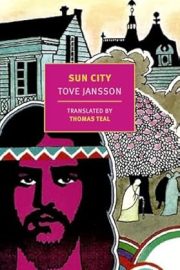
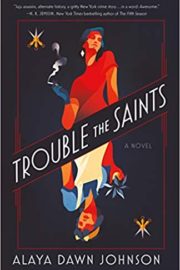
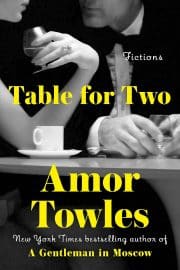
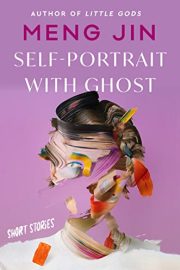
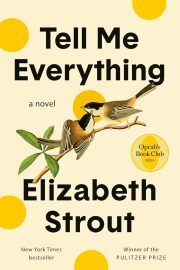
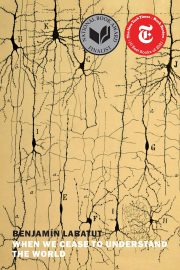
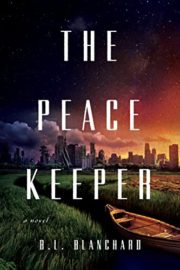
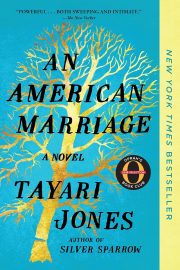
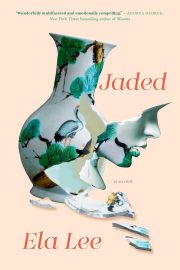
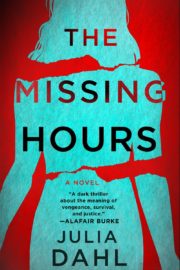
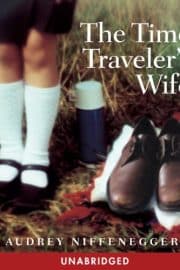
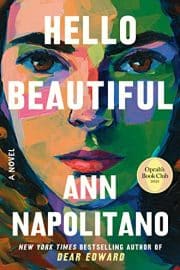
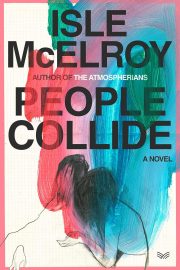
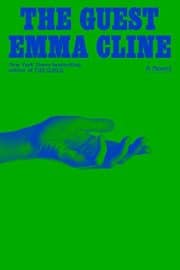
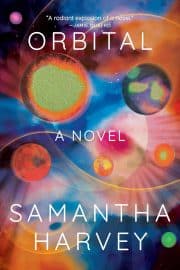
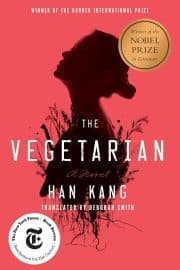

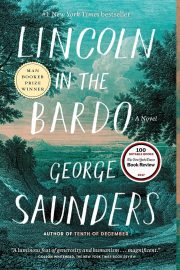
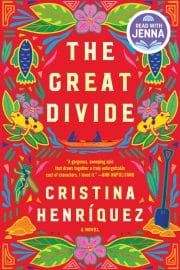
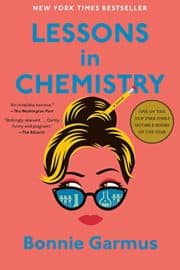
Contact US!
Have a question? Suggestion?
by Tove Jansson
Today, I began reading “Sun City” by Tove Jansson, translated by Thomas Teal. I found this book mentioned in Maya Chung‘s review in The Atlantic’s Book Briefings, and as an older man, it seemed like the perfect choice for me. In “The Summer Book” and “The True Deceiver,” as well as in her many short stories, Tove Jansson consistently explores the everyday lives of older adults.
She portrays them not as a separate group but as fully fleshed individuals who experience the same jealousies, desires, and joys as any other demographic. It’s no wonder that in her travels through America in the 1970s, she became fascinated with what was then a particularly American institution, the retirement home, where older people lived in their tightly knit worlds.
In Sun City, Jansson depicts these worlds in a group portrait of residents and employees at the Berkeley Arms in St. Petersburg, Florida. As the narrative moves from character to character, the characters move through an America riven by cultural divides, facing the death of its dream. The Berkeley Arms’s newest resident finds a place among the rocking chairs and endless chatter on the veranda while other residents long for past glories, mourning their losses and killing time. Meanwhile, one of their attendants, Bounty Joe, is eagerly awaiting a letter, or even just a postcard, alerting him to the imminent return of Jesus Christ. Nobody’s normal anymore,” the bartender says, “not the old geezers and not the newborn kids.”
When you purchase a book through one of my links, I earn a small commission that helps support my passion for reading. This contribution allows me to buy even more books to share with you, creating an incredible cycle of discovering great reads together! Your support truly makes a difference!
by Alaya Dawn Johnson
Trouble the Saints by Alaya Dawn Johnson is one of NPR’s Books We Love from 2020. The dangerous magic of The Night Circus meets the powerful historical exploration of The Underground Railroad in this timely and unsettling novel, set against the darkly glamorous backdrop of New York City at the dawn of WWII. Amidst the whir of city life, a girl from Harlem is drawn into the glittering underworld of Manhattan, where she’s hired to use her knives to strike fear amongst its most dangerous denizens.
The book is written in three sections with different protagonists and voices. Phyllis, or Pea as her friends call her, is a black assassin for a white mob boss narrates the first section of the book. Her saint’s hands are the ability to use knives to commit murder. She can also pass as white as Phyllis, but she is a black woman from Harlem as Pea. The section she narrates is difficult at first to follow as she attempts to deal with the consequences of her actions. Can the past ever be the past?
Dev, Indian and Phyllis’s lover, narrates the second section. He is an undercover cop who protects her and helps her free herself from the mob boss. This section is located in the Hudson Valley and highlights the tensions before the war between whites and non-whites.
The third protagonist, Tamara, narrates this section. The war separates Phyllis and Dev. Phyllis is pregnant, and Dev and Tamara’s love interest are serving in the military. This section brings together the threads and reminds us that the past is never the past.
As Goodreads summarizes the book,
But the ghosts from her past are always by her side—and history has appeared on her doorstep to threaten the people she loves most.
Can one woman ever sacrifice enough to save an entire community?
Trouble the Saints is a dazzling, daring novel—a magical love story, a compelling chronicle of interracial tension, and an altogether brilliant and deeply American saga.
I recommend this book and encourage all readers to read it to the end.
When you buy a book or product using a link on this page, I receive a commission. Thank you for supporting Sharing Jan’s Love blog.
by Amor Towles
Today, I began reading Amor Towles‘s “Table for Two: Fictions.” As a fan of his previous work, “A Gentleman in Moscow,” I was excited to delve into some of his shorter fiction. The book contains six stories from New York City and a novella from Golden Age Hollywood. “Table for Two is another captivating addition to Towles’s collection of stylish and transporting fiction written with his signature wit, humor, and sophistication.
The New York stories, set primarily in the year 2000, explore the profound consequences that can result from fleeting encounters and the intricate dynamics of compromise that underpin modern marriages. These narratives are sure to evoke strong emotions and leave a lasting impression.
In the novel “Rules of Civility,” the resilient Evelyn Ross departs from New York City in September 1938, intending to return to her home in Indiana. However, as her train reaches Chicago, where her parents eagerly await her, she spontaneously decides to extend her journey to Los Angeles. “Eve in Hollywood,” narrated from seven different perspectives, reveals how Eve forges a new path for herself and others in a gripping noirish tale that traverses the movie sets, bungalows, and dive bars of Los Angeles.
by Meng Jin
Self-Portrait with Ghost: Short Stories by Meng Jin was written during the turbulent years of the Trump administration and the first year of the pandemic, these stories explore intimacy and isolation, coming of age, and coming to terms with the repercussions of past mistakes, fraying relationships, and surprising moments of connection. I highly recommend Self-Portrait with Ghost: Short Stories!
Each story speaks so clearly to the loneliness epidemic that confronts our world. I would read one short story and promise to stop and wait until another day to read the next one. Instead
One phrase that will always remain with me is: “The hallucinatory quality of grief.” As a widow, the phrase struck a chord that will forever resonate in my soul.
This is the seventy-third book I have read this year.
The Goodreads summary provides an overview,
Meng Jin’s critically acclaimed debut novel, Little Gods, was praised as “spectacular and emotionally polyphonic (Omar El-Akkad, BookPage), “powerful” (Washington Post), and “meticulously observed, daringly imagined” (Claire Messud). Jin turns her considerable talents into short fiction in ten thematically linked stories.
Moving between San Francisco and China, and from unsparing realism to genre-bending delight, Self-Portrait with Ghost considers what it means to live in an age of heightened self-consciousness, seemingly unlimited access to knowledge, and little actual power.
Page-turning, thought-provoking, and wholly unique, Self-Portrait with Ghost further establishes Meng Jin as a writer who “reminds us that possible explanations in our universe are as varied as the beings who populate it” (Paris Review).
The Jan Lilien Education Fund sponsors ongoing sustainability and environmental awareness programs. Gifts made this month; I will match dollar-for-dollar. All donations are tax-deductible.
I receive a commission when you buy a book or product using a link on this page. Thank you for supporting Sharing Jan’s Love blog.
by Elizabeth Strout
Today, I dived into “Tell Me Everything: A Novel” by Elizabeth Strout, and I’m already captivated. This book made it onto NPR’s best books list for 2024 and caught the eye of Oprah’s Book Club—no small feat! Strout writes with such empathy and emotional depth that it reflects her incredible talent. Lucy beautifully captures this sentiment by stating, “Love comes in many different forms, but it is always love.”
With her profound understanding of the human condition and silences that convey deep emotions, Elizabeth Strout returns to the town of Crosby, Maine, reuniting with her beloved characters—Lucy Barton, Olive Kitteridge, Bob Burgess, and others—as they confront a shocking crime, navigate love while choosing to remain apart, and ponder the question, as Lucy Barton puts it, “What does anyone’s life mean?”
It’s autumn in Maine, and the town lawyer, Bob Burgess, finds himself entangled in a murder investigation, defending a lonely, isolated man accused of killing his mother. He has also developed a deep and abiding friendship with the acclaimed writer Lucy Barton, who lives nearby in a house by the sea with her ex-husband, William.
Lucy and Bob take walks and discuss their lives, fears, regrets, and what could have been. Meanwhile, Lucy is finally introduced to the iconic Olive Kitteridge, who now resides in a retirement community on the outskirts of town. They spend afternoons in Olive’s apartment, sharing stories about people they have known—what Olive calls “unrecorded lives,” which reanimate their experiences and imbue their lives with meaning.
When you purchase a book through one of my links, I earn a small commission that helps support my passion for reading. This contribution allows me to buy even more books to share with you, creating an incredible cycle of discovering great reads together! Your support truly makes a difference!
by Benjamín Labatut
Today, I began reading When We Cease to Understand the World by Benjamín Labatut, translated by Adrian Nathan West. This book, listed on The New York Times 100 Best Books of the 21st Century, promises to be thought-provoking as it delves into the intricate connections between scientific and mathematical discovery, madness, and destruction.
In a world where scientific advancements often involve ethical dilemmas and societal implications, this book offers a unique perspective on the lives of scientists who have shaped our understanding of the world. Fritz Haber, Alexander Grothendieck, Werner Heisenberg, and Erwin Schrödinger are some of the luminaries whose troubled lives Benjamín Labatut deeply explores in his fictional examination. Labatut shows how these scientists and thinkers grappled with profound questions of existence, experiencing strokes of unparalleled genius, alienating friends and lovers, and descending into isolation and insanity. Their discoveries, some of which significantly improved human life, while others led to chaos and unimaginable suffering, continue to shape our world.
With a breakneck pace and a wealth of disturbing detail, Labatut uses fiction’s imaginative resources to tell the stories of the scientists and mathematicians who expanded our notions of the possible.
by B.L. Blanchard
The Peacekeeper: A Novel by B.L. Blanchard is about North America, where The United States and Canada do not exist. After reading about Ethiopia during the ill-fated Italian invasion, I looked for an alternative history of my continent. An independent Ojibwe nation surrounding the Great Lakes is the change in venue that I was seeking.
Although crime mysteries are not my preferred genre, I found The Peacekeeper: A Novel by B.L. Blanchard a pageturner and a highly recommended book. Chibenashi’s works resolve a second murder twenty years after his mothers. The victim is his mother’s best friend. The search for truth will change his life and those close to him.
The Goodreads summary:
Against the backdrop of a never-colonized North America, a broken Ojibwe detective embarks on an emotional and twisting journey toward solving two murders, rediscovering family, and finding himself.
In the village of Baawitigong, a Peacekeeper confronts his devastating past.
Twenty years ago, Chibenashi’s mother was murdered, and his father confessed. Ever since caring for his still-traumatized younger sister has been Chibenashi’s privilege and penance. Now, another woman is slain on the same night of the Manoomin harvest—his mother’s best friend. The murder leads to a seemingly impossible connection that takes Chibenashi far from the only world he’s ever known.
The central city of Shikaakwa is home to the victim’s cruelly estranged family—and to two people Chibenashi never wanted to see again: his imprisoned father and the lover who broke his heart. As the questions mount, the answers will change his and his sister’s lives forever because Chibenashi is about to discover that everything about those lives has been a lie.
When you buy a book or product using a link on this page, I receive a commission. Thank you for supporting Sharing Jan’s Love blog.
by Tayari Jones
Today, I started reading “An American Marriage” by Tayari Jones. It is a masterpiece of storytelling that delves into people’s souls as they confront the past and move forward into the future with hope and pain. The book, which has won numerous awards and was selected as one of The New York Times’ 100 Best Books of the 21st Century, is a must-read for any contemporary fiction enthusiast.
Newlyweds Celestial and Roy embody both the American Dream and the New South. He is a young executive, and she is an artist on the brink of an exciting career. But as they settle into their routines, they are ripped apart by circumstances neither could have imagined. Their story reflects the complexities of modern relationships and the impact of the criminal justice system on individuals and families.
Roy’s arrest and subsequent twelve-year sentence for a crime he didn’t commit shatters their world. Though fiercely independent, Celestial finds herself adrift, seeking solace in Andre, her childhood friend and the best man at their wedding. As Roy’s time in prison stretches on, she struggles to hold on to the love that has always been her anchor. When Roy’s conviction is finally overturned after five years, he returns to Atlanta, ready to pick up the pieces of their shattered life, a testament to their resilience and enduring love.
This stirring love story is a profoundly insightful look into the hearts and minds of three people who are at once bound and separated by forces beyond their control. “An American Marriage” is a masterpiece of storytelling—an intimate look deep into people’s souls who must reckon with the past while moving forward—with hope and pain—into the future.
When you purchase a book through one of my links, I earn a small commission that helps support my passion for reading. This contribution allows me to buy even more books to share with you, creating an incredible cycle of discovering great reads together! Your support truly makes a difference!
by Ela Lee
Today, I started reading “Jaded: A Novel” by Ela Lee. The main character’s name is Jade, which isn’t even her real name. Jade began using it as her Starbucks name because all children of immigrants have a Starbucks name. “Jaded” is a must-read book for fans of “Queenie” and “I May Destroy You.” It offers a blistering—and sometimes darkly funny—account of consent, power, race, sexism, and identity in a broken society.
Jade has accomplished everything she ever wanted.
She’s a successful lawyer, a dutiful daughter, a beloved girlfriend, and a loyal friend. However, everything starts to crumble when she wakes up the morning after a work event, naked and alone, with no idea how she got home. Jade is caught between her parents, who can’t understand, her boyfriend, who feels betrayed, and her job, which expects silence.
Jade thought she was everything she ever wanted to be. But now she feels like nothing at all.
by Julia Dahl
The Missing Hours by Julia Dahl is a novel I chose to read as I was looking for something different from the recent books I have read, and a fellow reader recommended this one. The Missing Hours is a novel about obsession, privilege, and the explosive consequences of one violent act. Like a bomb exploding, the ripple effects of the novel’s primary event impact the victim and her family, friends, and the larger community.
A trigger warning to all readers, the violent act in the novel is a sexual assault that is filmed and shared. Claudia, the victim, has no memory initially of what happened. She had been drinking and wearing clothes that she liked to wear. None of her choices is an excuse for those who victimized her.
She cannot remember what happened until a friend receives the video.
Being wealthy and social media savvy, she is aware that reporting the assault before or after the video is released would only allow her to be re-victimized. Her choices and how she seeks to secure justice make this a book I enjoyed and highly recommended.
This is the Goodreads overview.
From a distance, Claudia Castro has it all: a famous family, a trust fund, thousands of Instagram followers, and a spot in NYU’s first-year class. But look closer, and things are messier: her parents are separating, she’s just been humiliated by a sleazy documentary, and her sister is about to have a baby with a man she barely knows.
Claudia starts the school year resolved to find a path toward something positive, maybe even meaningful – and then, one drunken night, everything changes. Reeling, her memory hazy, Claudia cuts herself off from her family, seeking solace in a new friendship. But when the rest of school comes back from spring break, Claudia is missing.
Suddenly, the whole city is trying to piece together the hours of that terrible night.
From the critically acclaimed author of Invisible City and Conviction, The Missing Hours is a novel about obsession, privilege, and the explosive consequences of one violent act.
When you buy a book or product using a link on this page, I receive a commission. Thank you for supporting Sharing Jan’s Love blog.
by Audrey Niffenegger
My wife had asked me to read – The Time Traveler’s Wife by Audrey Niffenegger – on several occasions. When we first met, we both liked to read fiction and non-fiction. As we aged, I focused almost exclusively on non-fiction, and she focused on fiction. Since her passing, I have started reading more of both genres. We could now have a book club!
Both Jan and I have always enjoyed books and movies about time travel. If I could travel back in time, there are tens of thousands of days I would love to spend with her again. But time travel is not possible. Or is it? Her spirit returns to me whenever I am paralyzed and encourages me to dust myself off and keep going. Maybe one day we will time travel together!
I enjoyed reading this book, even if it was difficult to keep track of the periods. It is very much the type of time-traveling book that both of us would have liked to read, and it has helped me to imagine a world in which Jan and I will meet again.
But what if it is not time travel as imagined by H. G. Wells. As the Hasidic story foretold, God split our souls at birth and placed one part of my soul in her body and placed the rest into my body. Very few people are lucky enough to find the person who has the other half of their soul, and Jan and I did.
When my life ends, what if God takes a portion of our two souls and places them into new bodies. Each of their souls would include a part of each of us. Those two new people would have to find each other in the future to connect as we did. They might not see each other and forever hunger for true love. Whatever happened, they would not know that they once were very much in love.
by Ann Napolitano
Hello Beautiful by Ann Napolitano is a gorgeous, profoundly moving portrait of what’s possible when we choose to love someone, not despite who they are but because of it. Although several sources recommended Hello Beautiful, I chose the novel based on the title as it is how I always greeted Jan. I highly recommend this book as it is one of the best I have ever read.
Hello Beautiful is an exquisite homage to Louisa May Alcott’s timeless classic, Little Women. Knowing it was not him, William Waters’s experience growing up as an only child was an engaging character in the early portion of the novel. However, my hero was Sylvie, the dreamer who pursued true love and found it in a place one would less expect to find it. The consequences of her love reverberate over decades in their families.
The following passage is one example of a well-written book.
We’re separated from the world by our own edges,” Charlie Padavano says to Sylvie in “Hello Beautiful.” He continues, “We’re all interconnected, and when you see that, you see how beautiful life is.
The interconnections of the characters make this novel one of the best I have read. If only more of us could learn the lessons that Charlie Padavano shared with Sylvie.
As a man on a lifetime grief journey, this exchange echoes my experience.
When an old person dies,” Kent said, “even if that person is wonderful, he or she is still somewhat ready, and so are the people who loved them. They’re like old trees, whose roots have loosened in the ground. They fall gently. But when someone like your aunt Sylvie dies—before her time—her roots get pulled out and the ground is ripped up. Everyone nearby is in danger of being knocked over.”
Grief is love.” Now Alice thought: Forgiveness is too.
The Goodreads summary provides an overview,
William Waters grew up in a house silenced by tragedy, where his parents could hardly bear to look at him, much less love him. So it’s a relief when his skill on the basketball court earns him a scholarship to college, far away from his childhood home. He soon meets Julia Padavano, a spirited and ambitious young woman who surprises William with her appreciation of his quiet steadiness. With Julia comes her family; she is inseparable from her three younger sisters: Sylvie, the dreamer, is happiest with her nose in a book and imagines a future different from the expected path of wife and mother; Cecelia, the family’s artist; and Emeline, who patiently takes care of all of them. Happily, the Padavanos fold Julia’s new boyfriend into their loving, chaotic household.
But then darkness from William’s past surfaces, jeopardizing not only Julia’s carefully orchestrated plans for their future, but the sisters’ unshakeable loyalty to one another. The result is a catastrophic family rift that changes their lives for generations. Will the loyalty that once rooted them be strong enough to draw them back together when it matters most?
The Jan Lilien Education Fund sponsors ongoing sustainability and environmental awareness programs. Gifts made this month; I will match dollar-for-dollar. All donations are tax-deductible.
I receive a commission when you buy a book or product using a link on this page. Thank you for supporting Sharing Jan’s Love blog.
by Isle McElroy
Today, I started reading “People Collide” by Isle McElroy. The book is about a gender-bending, body-switching story that explores the themes of marriage, identity, and sex. “People Collide” is a profound exploration of ambition, sacrifice, desire, and loss. The book sheds a refreshing light on themes of love, sexuality, and the truth of who we are.
The protagonist, Eli, lives with his wife, Elizabeth, in a cramped apartment in Bulgaria. One day, Eli wakes up to find that he has switched bodies with Elizabeth, who has disappeared without a trace. The story follows Eli’s journey across Europe and America to find his missing wife while he learns to exist in her body.
As Eli comes closer to finding Elizabeth, he begins to question the effect of their metamorphosis on their relationship. He wonders how long he can keep up the illusion of living as someone else. Will their marriage wither away entirely in each other’s bodies? Or will this transformation be the key to making their marriage thrive?
The Jan Lilien Education Fund sponsors ongoing sustainability and environmental awareness programs. Gifts made this month; I will match dollar-for-dollar. All donations are tax-deductible.
I receive a commission when you buy a book or product using a link on this page. Thank you for supporting Sharing Jan’s Love blog.
by Emma Cline
The Guest by Emma Cline is a highly recommended book, recognized as one of the top releases for May by The New York Times. At first, I assumed it was just another typical summer romance novel I usually don’t enjoy. However, I was surprised that it was unlike any other beach read I had encountered.
The protagonist, Alex, finds herself in a difficult situation after making a mistake at a dinner party in the East End of Long Island towards the end of summer. The man she’s been staying with dismisses her and sends her back to the city. With limited resources and a waterlogged phone, Alex decides to stay on Long Island and explore her surroundings. She wanders through exclusive neighborhoods and beaches, leaving a trail of destruction behind her.
According to The New York Times, Alex’s days and nights waiting for Labor Day might be “an entertaining series of misguided shenanigans interrupting the upper class’s summer vacation. However, under Cline’s command, every sentence is as sharp as a scalpel, portraying a woman who toes the line between welcome and unwelcome guest and becomes a fully destabilizing force for her hosts and the novel itself.
Although the book has no experience with themes, such as using sex to secure what she desires, as soon as I started reading it, I could not stop. Regardless of my unfamiliarity with the topics, I highly recommend The Guest.
The Jan Lilien Education Fund sponsors ongoing sustainability and environmental awareness programs. Gifts made this month; I will match dollar-for-dollar. All donations are tax-deductible.
I receive a commission when you buy a book or product using a link on this page. Thank you for supporting Sharing Jan’s Love blog.
by Samantha Harvey
Today, I started reading “Orbital” by Samantha Harvey. “Orbital” is a slender novel with epic power that captures a single day in the lives of six women and men hurtling through space. The author’s prose is poetic and impossible to put aside. Watching the Earth through the eyes of space travelers is refreshing. If I finish reading it by Sunday, it will be the 78th book I’ve read this year or the first one of 2024.
They are not going towards the moon or the vast unknown but are orbiting our planet. These astronauts and cosmonauts come from various countries, including America, Russia, Italy, Britain, and Japan. They are selected for one of the last space station missions before the program is dismantled. They have left their lives behind to travel over seventeen thousand miles an hour as the earth reels below.
Throughout the book, we catch glimpses of their earthly lives through brief communications with their families, photos, and talismans. We watch them whip up dehydrated meals, float in gravity-free sleep, and exercise in regimented routines to prevent their muscles from atrophying. We also witness them form bonds that will stand between them and utter solitude. Most importantly, we are with them as they behold and record their silent blue planet. Their experiences of sixteen sunrises and sunsets and the bright, blinking constellations of the galaxy are breathtakingly beautiful and surprisingly intimate. Additionally, we get to see the marks of civilization far below, encrusted on the planet on which we live.
It is a profound, contemplative, and gorgeous book that eloquently meditates on space. Moreover, it is a moving elegy reflecting our humanity, environment, and planet.
The Jan Lilien Education Fund sponsors ongoing sustainability and environmental awareness programs. For gifts made this month, I will match dollar for dollar. All donations are tax-deductible.
I receive a commission when you buy a book or product using a link on this page. Thank you for supporting Sharing Jan’s Love blog.
by Han Kang
Today, I started reading The Vegetarian: A Novel by Han Kang, Winner of the 2024 Nobel Prize in Literature. The novel also won The International Booker Prize and is one of The New York Times’s 100 Best Books of the 21st Century. Celebrated by critics worldwide, The Vegetarian is a darkly allegorical, Kafka-esque tale of power, obsession, and one woman’s struggle to break free from the violence both without and within her.
Before the nightmares began, Yeong-hye and her husband lived an ordinary, controlled life. But the dreams—invasive images of blood and brutality—torture her, driving Yeong-hye to purge her mind and renounce eating meat altogether. It’s a small act of independence, but it interrupts her marriage and sets into motion an increasingly grotesque chain of events at home.
As her husband, her brother-in-law, and her sister each fight to reassert their control, Yeong-hye obsessively defends the choice that’s become sacred to her. Soon, their attempts turn desperate, subjecting first her mind and then her body to ever more intrusive and perverse violations, sending Yeong-hye spiraling into a dangerous, bizarre estrangement, not only from those closest to her but also from herself.
Han Kang was born in 1970 in South Korea. She is the author of The Vegetarian, which I have read, and winner of the International Booker Prize, Human Acts, The White Book, Greek Lessons, and We Do Not Part. In 2024, she received the Nobel Prize in Literature.
When you purchase a book through one of my links, I earn a small commission that helps support my passion for reading. This contribution allows me to buy even more books to share with you, creating an incredible cycle of discovering great reads together! Your support truly makes a difference!
by Mark Haddon
Today, I started reading Dogs and Monsters: Stories by Mark Haddon. The collection features eight captivating and imaginative stories that blend Greek myths with contemporary dystopian narratives. The stories explore themes of mortality, moral choices, and various forms of love, including romantic, familial, and self-love. Haddon’s clear-eyed vision is infused with deep empathy.
In addition, Haddon’s fluid prose showcases his remarkable powers of observation, both of the physical world and the inner workings of the human psyche. Greek myths have fascinated people for millennia with their timeless appeal and enduring lessons about fate, hubris, and life’s uncertainties. In Dogs and Monsters: Stories, Mark Haddon delves into the heart of these ancient fables and presents them in a fresh light. For instance, in one story, the dawn goddess Eos requests that Zeus grant her lover Tithonus eternal life but forgets to ask for eternal youth. In “The Quiet Limit of the World,” Haddon imagines Tithonus’s life as he ages over thousands of years, transforming this cautionary tale about tempting the gods into a spellbinding meditation on observing death from the outside. This tale ultimately explores how carnal love evolves into something more profound and poignant over time.
In “The Mother‘s Story,” Haddon reinterprets the myth of the Minotaur, born of the monstrous lust of King Minos’s wife, Pasiphaë. He turns it into a heartbreaking parable of a mother’s love for a damaged child and the more tangible monstrosities of patriarchy. In “D.O.G.Z.,” the story of Actaeon, who was transformed into a stag after glimpsing the naked goddess Diana and was subsequently torn apart by his hunting dogs, becomes a visceral metaphor for the continuum of human and animal behavior.
Other stories in Dogs and Monsters: Stories play with contemporary mythic tropes—such as genetic engineering, attempts to escape the future, and the cruelty of adolescent ostracism. These stories showcase how modern humans are subject to the same capriciousness that concerned the Greeks but in a fresh and intriguing light. Haddon‘s tales cover a wide range of themes, from the mythic to the domestic, from ancient Greece to the present day, and explore love alongside stories of cruelty. They take readers from battlefields to bed and breakfasts and from dogs in space to doors between worlds, all bound together by profound sympathy and an insight into how human beings think, feel, and act when pushed to their limits.
by George Saunders
My journey with “Lincoln in the Bardo: A Novel” by George Saunders began with recognition as one of The New York Times’ 100 Best Books of the Century. As I turned its pages, I was immersed in its profound exploration of living and loving in the face of inevitable endings. The book, which struck a personal chord with me after a loss, is a testament to Saunders’ storytelling prowess and a must-read for those interested in Abraham Lincoln.
February 1862. The Civil War is less than one year old. The fighting has begun in earnest, and the nation has already realized it is in for a long, bloody struggle. Meanwhile, President Lincoln’s beloved eleven-year-old son, Willie, lies upstairs in the White House, gravely ill. In a matter of days, despite predictions of a recovery, Willie dies and is laid to rest in a Georgetown cemetery. “My poor boy, he was too good for this earth,” the president says at the time. “God has called him home.” Newspapers report that a grief-stricken Lincoln returns, alone, to the crypt several times to hold his boy’s body.
From a seed of historical truth, George Saunders weaves an unforgettable tale of familial love and loss that transcends its realistic, historical framework. The story takes a daring leap into a realm that is hilarious and terrifyingly supernatural. Willie Lincoln’s journey in a strange purgatory, where ghosts mingle, gripe, commiserate, quarrel, and enact bizarre acts of penance, is a testament to Saunders’ imaginative prowess. The monumental struggle over young Willie’s soul in this transitional state, known as the bardo in the Tibetan tradition, is a narrative that will leave you spellbound.
Lincoln in the Bardo is an astonishing feat of imagination and a bold step forward from one of his generation’s most important and influential writers. Formally daring, generous in spirit, and deeply concerned with matters of the heart, it is a testament to fiction’s ability to speak honestly and powerfully about the things that matter to us. Saunders has invented a thrilling new form that deploys a kaleidoscopic, theatrical panorama of voices to ask a timeless, profound question: How do we live and love when we know everything we love must end?
by Cristina Henriquez
I began to read “The Great Divide: A Novel” by Cristina Henriquez today. The book stood out for its compassionate exploration of the lives of activists, fishmongers, laborers, journalists, neighbors, doctors, and soothsayers. It sheds light on individuals whose essential contributions history overlooks. The novel weaves these characters’ stories in a unique and compelling narrative structure.
Set against the backdrop of the yet-to-be-built Panama Canal, the book delves into the lives of various characters. Francisco, a local fisherman, resents the foreign powers vying for control of his homeland. His son, Omar, works in the excavation zone, seeking connection in a rapidly changing world.
Sixteen-year-old Ada Bunting, from Barbados, stows away in Panama to find work and fund her ailing sister’s surgery. When she encounters Omar, who collapsed after a grueling shift, she rushes to his aid, setting off a chain of events that will change their lives.
John Oswald, a scientist dedicated to eliminating malaria, is in Panama when his wife, Marian, falls ill. Witnessing Ada’s bravery and compassion, he hires her as a caregiver, setting off a tale of ambition, loyalty, and sacrifice.
by Bonnie Garmus
Lessons in Chemistry: A Novel by Bonnie Garmus is a must-read book as it reimagines the gender dynamics of the 1950s and early 1960s. Elizabeth Zott, a chemist, struggles in a male-dominated world where her work is not taken seriously until she meets Calvin Evans. She describes their relationship, “Calvin and I were soulmates,” like Jan and I viewed ours.
What underlies their love affair was “a mutual respect for the other’s capabilities.” “Do you know how extraordinary that is?” she said. That a man would treat his lover’s work as seriously as his own?” Of course, every relationship should be based on the same dynamics, but even after seventy years, we still struggle to achieve equality in our society.
I highly recommend this novel. Reading the story, the Zott/Evans relationship reminded me of the love that Jan and I shared. I know that Jan would have loved this book.
Laugh-out-loud funny, shrewdly observant, and studded with a dazzling cast of supporting characters, Lessons in Chemistry is as original and vibrant as its protagonist. Like Jan, Elizabeth Zott, the protagonist, would be the first to point out that there is no such thing as an average woman. Chemist Elizabeth Zott is not your average woman.
Although Jan and Elizabeth had much in common, I felt Madeline (aka Mad), Elizabeth’s daughter, was Jan’s alter ego in this novel. Jan was smart and ahead of her classmates, just like Mad was. She was breaking barriers when she was Mad’s age.
I also connected to Six Thirty, the dog. Like Oscar, Six Thirty was more intelligent than the average dog.
Lessons in Chemistry has been the number one best-selling book in the New York Times for thirty-four weeks.
The Goodreads summary provides an overview,
It’s the early 1960s and Elizabeth Zott’s all-male team at Hastings Research Institute takes a very unscientific view of equality. Except for one: Calvin Evans, the lonely, brilliant, Nobel–prize-nominated grudge-holder who falls in love with—of all things—her mind. True chemistry results.
But like science, life is unpredictable. Which is why a few years later Elizabeth Zott finds herself not only a single mother, but the reluctant star of America’s most beloved cooking show Supper at Six. Elizabeth’s unusual approach to cooking (“combine one tablespoon acetic acid with a pinch of sodium chloride”) proves revolutionary. But as her following grows, not everyone is happy. Because as it turns out, Elizabeth Zott isn’t just teaching women to cook. She’s daring them to change the status quo.
The Jan Lilien Education Fund sponsors ongoing sustainability and environmental awareness programs. Gifts made this month; I will match dollar-for-dollar. All donations are tax-deductible.
I receive a commission when you buy a book or product using a link on this page. Thank you for supporting Sharing Jan’s Love blog.
Subscribe to Sharing Jan's Love Newsletter!
by Megan Goldin
The Night Swim by Megan Goldin is a book that I thought would be different from the last two books – Sarah’s Key and Send for Me – that I had read. Both of those were directly or indirectly about the Holocaust. I often selected this book from the e-library based on reviews and reading the sample section.
The Night Swim was a page-turner, but it also was about numerous social issues that Jan ad I had spent our lives working to resolve.
Among these are male violence and its impact directly and indirectly on women. Rachel Krall, a podcaster, spoke about how male violence had impacted her. Two of the other female characters were either a victim or the sister of a victim. Having spent my life trying not to exhibit male violence, I was reminded while reading his novel of how painful it can be and the impact of micro-aggressions.
I knew that the author had done her research when I realized that. Ms. Goldin set the story in Neapolis, a fictional town on the outer banks of North Carolina. Neapolis, which in Latin means “New Town,” is also the old Roman name for the biblical city of Sheechem, where the rape of Dinah took place.
I missed the role of the Nightingale as it appears more as a background piece and not a primary role. Of course, this is a subtle reference by the author to Greek mythology and the rape of Philomela by her sisters’ husband. Her assailant cut out her tongue to prevent her from speaking of the crime. She was turned into a nightingale to escape. That is why female nightingales cannot sing. The one in the novel never sings and is rescued by Rachel at the end of the book.
Rachel narrates two sections of the novel, first with her on-the-ground work at the trial and second with her podcasts.
Hannah’s narrative is initially only in letters and then emails.
This format helped move the story along and make the story unfold in unique ways.
The following is a summary from Goodreads.
After the first season of her true-crime podcast became an overnight sensation and set an innocent man free, Rachel Krall is now a household name―and the last hope for thousands of people seeking justice. But she’s used to being recognized for her voice, not her face. Which makes it all the more unsettling when she finds a note on her car windshield, addressed to her, begging for help.
The small town of Neapolis is being torn apart by a devastating rape trial. The town’s golden boy, a swimmer, destined for Olympic greatness, has been accused of raping a high school student, the beloved granddaughter of the police chief. Under pressure to make Season Three a success, Rachel throws herself into interviewing and investigating―but the mysterious letters keep showing up in unexpected places. Someone is following her, and she won’t stop until Rachel finds out what happened to her sister twenty-five years ago. Officially, Jenny Stills tragically drowned, but the letters insist she was murdered―and when Rachel starts asking questions, nobody seems to want to answer. The past and present start to collide as Rachel uncovers startling connections between the two cases that will change the course of the trial and the lives of everyone involved.
Electrifying and propulsive, The Night Swim asks: What is the price of a reputation? Can a small town ever right the wrongs of its past? And what happened to Jenny?
I highly recommend this novel and look forward to reading more of Ms. Goldin’s work.
by Ann Patchett
Today, I began reading Tom Lake by Ann Patchett. The novel beautifully explores family, love, and growing up. Patchett once again proves herself as one of America’s finest writers. Both hopeful and mournful, it explores happiness even when the world falls apart.
The story follows Lara’s three daughters, who return to the family’s orchard in Northern Michigan in the spring of 2020. While picking cherries, they ask their mother about Peter Duke, a famous actor with whom she had a romance years before at a theater company called Tom Lake.
As Lara reminisces, her daughters are confronted with their own lives and relationships with their mothers, leading them to reevaluate everything they thought they knew. With its hopeful and mournful tone, the novel is a testament to the transformative power of understanding what happiness truly means, even amid chaos. Patchett’s compelling narrative artistry and profound insights into family dynamics weave a rich and luminous story, showcasing why she is one of our time’s most revered and acclaimed literary talents.
I have also read Patchett’s Bel Canto, a compelling tale that explores themes of strength, vulnerability, love, and confinement. It ultimately tells an inspiring story of transcendent romance.
The Jan Lilien Education Fund sponsors ongoing sustainability and environmental awareness programs. Gifts made this month; I will match dollar-for-dollar. All donations are tax-deductible.
I receive a commission when you buy a book or product using a link on this page. Thank you for supporting Sharing Jan’s Love blog.
by Antoine de Saint-Exupéry
The Little Prince by Antoine de Saint-Exupéry is often referred to as a children’s book. I read it as a child and later read it to my children. After Jan died, I picked it up again and read it more than once.
I have found quotes from the book very helpful during my grief journey. These are three that I often use in my writing and my conversations with friends and family.
The most beautiful things in the world cannot be seen or touched, they are felt with the heart.”
It is such a mysterious place, the land of tears.
You see, one loves the sunset when one is so sad.”
The first quote about beautiful things only felt in the heart summarizes how I knew Jan was the one for me within seconds of meeting her.
For those who have not read the book, this overview might help convince you to read it today!
The Little Prince describes his journey from planet to planet, each tiny world populated by a single adult. It’s a wonderfully inventive sequence that evokes the great fairy tales and monuments of postmodern whimsy. The author pokes similar fun at a business person, a geographer, and a lamplighter, all of whom signify some futile aspect of adult existence.
The Little Prince will be by my bedside as long as I live!
by Annika Norlin
Today, I explored “The Colony,” Annika Norlin‘s debut novel, which Alice E. Olsson has skillfully translated. This sensational bestseller from Sweden has captured the imagination of readers around the globe, with its rights sold in over a dozen countries and an exciting TV adaptation in the works. “The Colony,” has quickly become one of the most talked-about literary sensations since Fredrik Backman’s ‘A Man Called Ove.’
Winner of the Vi Literature Award and Swedish Radio’s Novel Prize, two of Sweden’s most prestigious literary awards, “The Colony” is a compelling portrayal of contemporary society and its alternatives.
Burned out from a demanding job and the hectic pace of city life, Emelie decides to spend a few days in the countryside. There, amidst the peaceful, green hills by the river, she encounters a mysterious group of seven people, each with personal stories marked by pain, alienation, and a longing to live differently. They are misfits in their ways, all led by the enigmatic and charismatic Sara.
How did they end up in this place? Are they content with the rigid roles assigned to them? And what happens when an outsider arrives, initially drawn to their alternative lifestyle, but inevitably disrupts their way of life?
A masterful blend of humor, emotion, unforgettable characters, and sharp social commentary, “The Colony” is a magnetic and deeply touching story about love, community, and our profound influence over one another.
Annika Norlin is a Swedish author, songwriter, and artist. She releases music under her name and through her projects, Säkert! and Hello Saferide. Her collection of short stories, “I See Everything You Do,” has been nominated for several awards. “The Colony” is her debut novel.
Alice E. Olsson is a literary translator, writer, and editor. She has served as the Cultural Affairs Adviser at the Embassy of Sweden in London and has received a fellowship and multiple grants from the Swedish Arts Council. Olsson was a nominee for the 2020 Peirene Stevns Translation Prize and the 2023 Bernard Shaw Prize.
When you purchase a book through one of my links, I earn a small commission that helps support my passion for reading. This contribution allows me to buy even more books to share with you, creating an incredible cycle of discovering great reads together! Your support truly makes a difference!
by James McBride
I started reading The Heaven & Earth Grocery Store: A Novel by James McBride today. It’s the seventy-first book I’ve read this year and the two hundredth since January 1, 2019. The novel’s narrative begins in 1972 when workers in Pottstown, Pennsylvania, were digging the foundations for a new development. They were surprised to find a skeleton at the bottom of the well. The identity of the skeleton and how it ended up there were long-held secrets that the residents of Chicken Hill kept.
Jewish immigrants and African Americans lived together in this run-down neighborhood and shared their aspirations and hardships. Moshe and Chona Ludlow resided in Chicken Hill when Moshe integrated his theatre, and Chona ran the Heaven & Earth Grocery Store. When the state officials searched for a deaf boy to institutionalize him, it was Chona and Nate Timblin, the Black janitor at Moshe’s theatre and the unofficial leader of the Black community on Chicken Hill, who collaborated to keep the boy safe.
As the stories of these characters intertwine and develop, it becomes evident how much the individuals living on the outskirts of white, Christian America struggle to survive and what they must do to make it through. As the truth is ultimately disclosed regarding the events that occurred on Chicken Hill, including the involvement of the town’s white establishment, McBride illustrates to us that, even in the darkest of times, love and community – the very essence of heaven and earth – help us endure.
Bringing his masterly storytelling skills and deep faith in humanity to The Heaven & Earth Grocery Store, James McBride has written a novel as compassionate as Deacon King Kong and as inventive as The Good Lord Bird.
The Jan Lilien Education Fund sponsors ongoing sustainability and environmental awareness programs. Regarding gifts made this month, I will match dollar for dollar. All donations are tax-deductible.
I receive a commission when you buy a book or product using a link on this page. Thank you for supporting Sharing Jan’s Love blog.
by Bea Setton
I’ve begun reading Berlin: A Novel by Bea Setton. After finishing Kairos, a book set in a divided Berlin, Setton’s debut novel is witty and insightful, with a young woman battling a sense of emptiness who moves to Berlin for a fresh start. However, things go differently than planned.
Daphne, the protagonist, moves to Berlin hoping for a new beginning but deals with more drama than she left behind. She knows she needs to make friends, learn German, and navigate a new way of life. She even expects to spend long nights alone with Nutella and experience the difficulties of online dating in another language. But one night, something unexpected and unnerving happens in her apartment, and Daphne’s life suddenly turns dangerous.
Setton captures the modern female experience with sharp observations and wit, making Berlin a must-read for her generation.
The Jan Lilien Education Fund sponsors ongoing sustainability and environmental awareness programs. Gifts made this month; I will match dollar-for-dollar. All donations are tax-deductible.
I receive a commission when you buy a book or product using a link on this page. Thank you for supporting Sharing Jan’s Love blog.